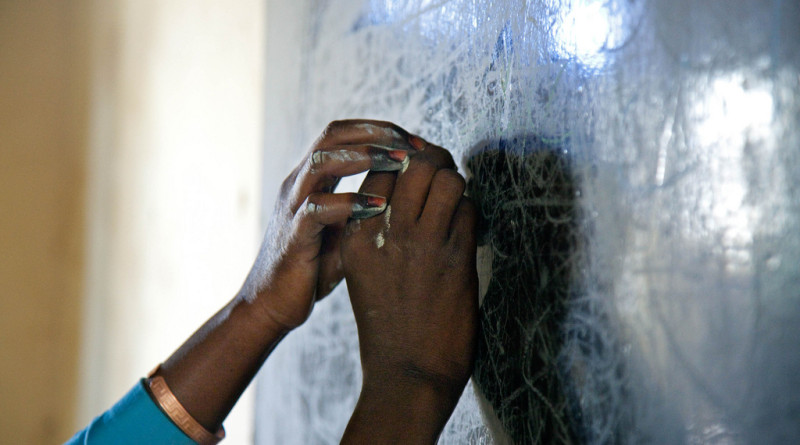Envisioning Thoughtful Learning
Is it possible to unite examination oriented coaching and thoughtful learning? In this analytical essay a pedagogue reflects on this question, and explores the possibility of an enriching curriculum.
By Dr. Sriparna Chakrabarti
In this article, I would like to pursue the following key question:
In the current education system in India, keeping in mind the widely perceived educational goals, which one – ‘examination oriented coaching’ or ‘thoughtful learning’ – should be prioritized if we visualize building a better nation and a peaceful world? This question matters to me, and I am sure would be of importance to many other educators and policy makers, teachers, parents, school leaders and other thinking citizens. In an attempt to respond to the Key Question, let me clarify some phrases that are embedded in the question – ‘widely perceived educational goals’, ‘examination oriented coaching’ and ‘thoughtful learning’.
- By ‘widely perceived educational goals’ I mean the purpose or end result that generally the parents have when they send their children to school for their education. From the viewpoint of a parent, I would like my child to grow up to be a confident, compassionate and ethical young man/woman; get a respectable position and financial security in life (good job); lead a peaceful and happy life, make decisions independently and responsibly and pass on the legacy of good life and work to others.
Assuming that having a good job is the most crucial educational goal, let me work backwards to understand the kind of education which would be feasible.
- For a good job, there is a need to get into reasonably renowned colleges and get a couple of esteemed degrees;
- To get into renowned colleges, there is a need to get high marks in the subjects that are important for the stream that is chosen;
- To get high marks, there is a need to be persistent with practice, solve similar patterns of questions as expected in the examinations, take coaching classes and strive to get better in test taking abilities.
- The above backward walk directly brings us to the meaning and significance of ‘examination oriented coaching’ –constant rigor and repeated practice of similar types of questions, questions which are supposed to have single correct answers, questions which do not make you think but recall the answer which you have memorized or may be understood while memorizing, questions which are only asked by the teachers and examiners, and the students are supposed to answer them correctly. This kind of training in school, which revolves around students’ examination grades, is what I mean by ‘examination oriented schooling’. We value this immensely in our education system and if everything goes well, it leads the students to the path of reasonably good marks, then into reasonably good colleges, and then into reasonably good jobs.
However, can our children imbibe life-long learning through this system? Are all kinds of learners able to reap maximum benefits out of this rigorous training for 10-12 years? If not, have they not wasted their time in school for those vital, formative 12 years? Are we expecting them to start afresh and re-discover their strengths elsewhere after finishing school? How many of them value and relate to this kind of ‘exam oriented education’ in school, when they tread into their real lives?
- By ‘thoughtful learning’, I meant that the teaching-learning processes would revolve around student thinking across all grades across all disciplines. An education system where:
- Diverse opportunities are provided to stimulate curiosity; learners are triggered to think originally, both critically and creatively; both analytical and imaginative minds are nurtured.
- Wonderment, questioning and inquiring are considered as essential virtues as opposed to instantly knowing the right answer for every question and putting everything in the right box.
- Students are encouraged to appreciate one’s own ways of thinking and learning as well as others’.
- Awareness of one’s own strengths and areas of improvement is inculcated – they are encouraged to push their own boundaries and celebrate each other’s uniqueness.
- Actions/experiences of learners are followed by reflection, be it an experiment, a reading, a video, an image, a poem or a song; they slow down and pause to think after every action as opposed to jumping into rushed conclusions.
- Learners expand their thinking from ‘me’ to ‘others’ – other human beings, other creatures, world, planet, Universe – towards nurturing attributes such as compassion, open mindedness, acceptance and respect for others’ time and space, towards making ‘interconnectedness’ visible.
- Students draw similarities and differences between apparently disparate objects, events, phenomena, living systems, human societies; reflectively they learn to respect and accept differences in order to maintain harmony.
- Learners look at a situation/event/experiment/art work from different perspectives – they are allowed to think in a full circle, be in the shoes of all the stakeholders and share their viewpoints from different vantage points.
- Students engage with problems, scenarios, issues for a longer time and collaboratively come up with possible solutions, evaluate the solutions and act on the feasible ones – they take measured risks and design and innovate fearlessly.
- Learners are encouraged to be intellectual, professional and respectful skeptic and critic during their years of learning – they make decisions and evaluate options through evidence-based reasoning and construction of arguments.
- Students are encouraged to become adept in verbal, written, digital and non-verbal communication – articulation of their thinking minds.
Coming back to the key question and some possible solution(s):In a nutshell, ‘thoughtful learning’ is a mindful process in which the learners and their teachers continuously foster deep thinking, challenge themselves with deep inquiry, take criticisms and failures as learning opportunities, extend their thinking across disciplinary boundaries, and as a result, attain profound learning, using not only their sense perceptions, but their reflective minds.
‘Examination oriented coaching’ Vs ‘thoughtful learning’ – In the current scenario, both have their own advantages. If the former is pragmatic, the latter promises inner satisfaction; if the former ensures good job, the latter ensures ability to solve problems, deal with challenges and cope with changes in the job; if the former leads to elegant educational degrees, the latter leads to a peaceful and fuller life. As the goals of these two approaches are different, they are apparently difficult to converge.
- Could we think of a parallel system of education in schools? Mindful learning will be consciously practiced in the most vital developmental years and once the learners are mature enough (grades 9 to 12) they are also trained to become exam-taking experts. OR,
- Could we think of a concentric system of education in schools where the inner circle will comprise of ‘thoughtful learning’ and aim towards development of inquiry and integration abilities for all the students from their early years and the outer circle will have ‘examination oriented training’ in which the skills of doing well in exams are taught as one of the necessary skills.
- An enriching curriculum for ‘thoughtful learning’ at the core would have to be put together, with creative pedagogies. Technology would prove to be a great enhancing factor in designing such a curriculum.
This article is not meant to have a conclusion; it rather opens up a discussion which, I believe, is important for all those who are grappling with finding a balance between life-long learning and job oriented learning.













